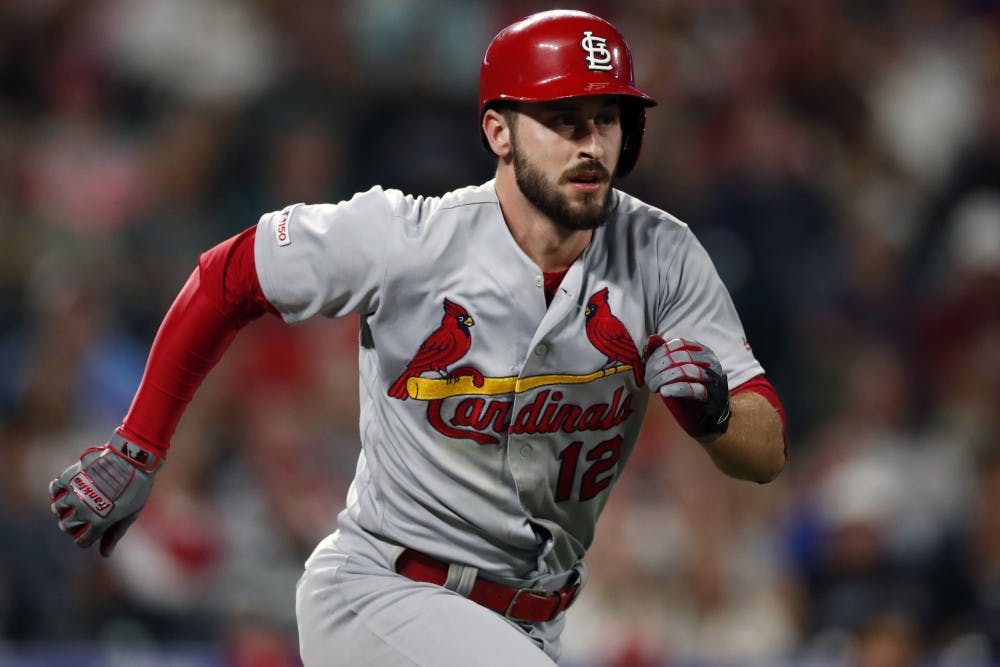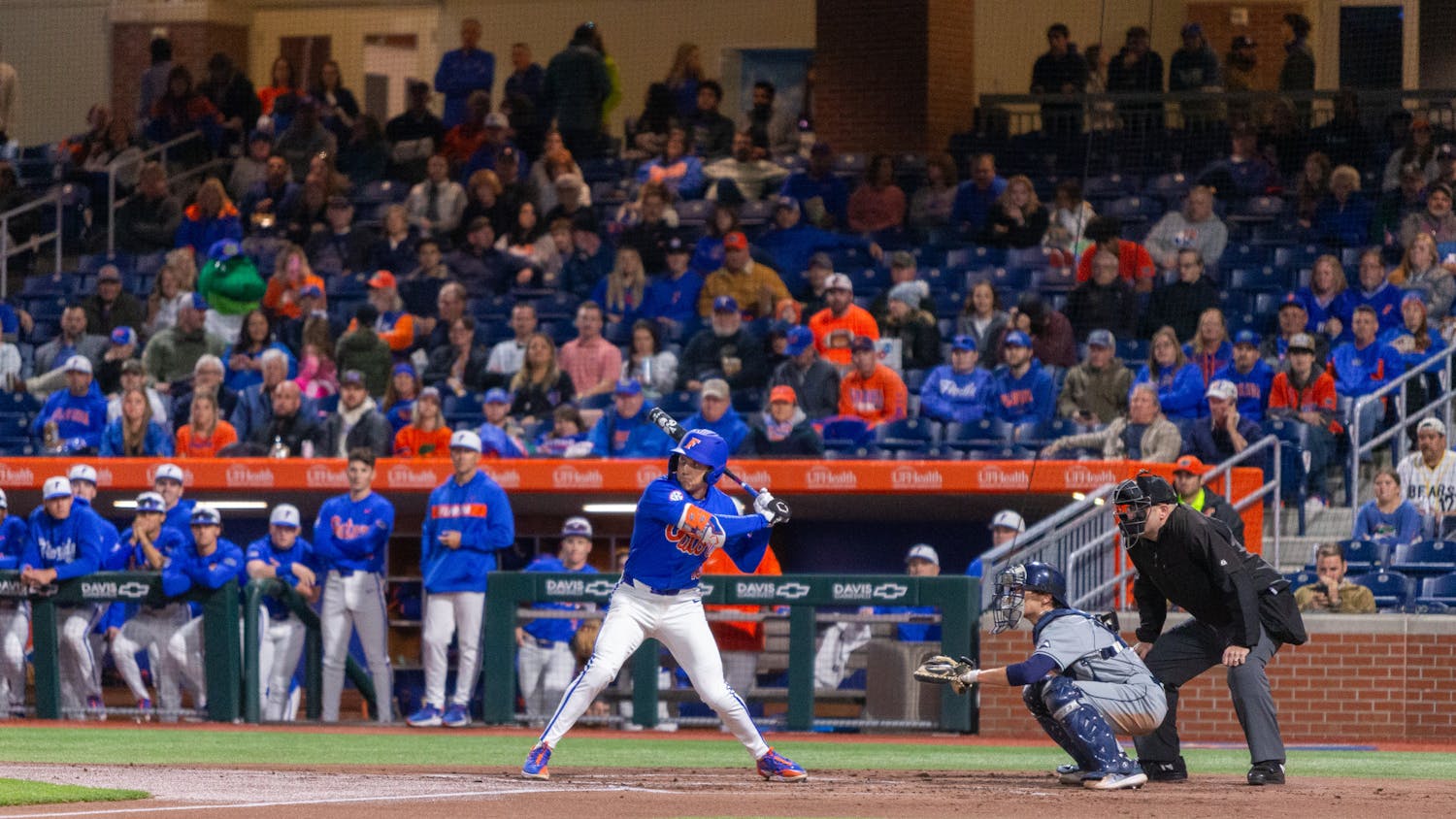“The one constant through all the years has been baseball.”
That was an iconic line uttered by James Earl Jones in the 1989 baseball fantasy “Field of Dreams.”
While that line may just sound like a Hollywood romanticization of a sport that seems to only be watched by boomers these days, there is certainly some truth to it.
Many times, in America’s past, baseball has helped unite and distract a mourning nation.
During World War II, President Franklin Roosevelt insisted games continue on the diamond, even as many stars – such as Ted Williams and Joe DiMaggio – served in the armed forces. He said baseball would provide a welcome diversion of the horrors of war.
Of course, there are the more recent examples of baseball’s unique ability, such as Mike Piazza’s go-ahead home run against the Mets just 10 days after the Sept. 11 attacks and George W. Bush throwing out the first pitch at Yankee Stadium during the World Series a month later.
I could keep going, but the point is that baseball, more than any other sport, has always been for Americans, in good times and bad times.
But now, as many are going through some of the worst times in recent memory, MLB owners and players aren’t living up to that responsibility.
On May 11, MLB owners approved a plan to start the season on July 4 weekend with an 82-game schedule and an expanded postseason, from 10 to 14 teams.
The proposal made the MLB, at the time, one of the first U.S. leagues to approve a plan to return.
But now, more than two weeks have passed, and while the NHL has announced its plan to return and the NBA seems close to doing so, MLB players and owners have been engaged in a battle royale that has angered and confused fans.
On Tuesday, MLB owners released a proposal that would result in significant pay cuts for all players and particularly the highest paid ones.
The MLB Players Association immediately rejected the idea. Washington Nationals pitcher Max Scherzer tweeted Wednesday, “there is no need to engage with MLB in any further compensation reductions.”
The players are expected to release their own proposal with a longer schedule and fully prorated salaries, therefore continuing the volleying between the two sides.
ESPN’s Jeff Passan reported the league wants to have a deal done by Monday to start the season in early July, but that seems unlikely at this point.
Some of the concerns brought up by players are valid, such as testing. Baseball players should care about their health and safety, especially during a pandemic. And they should care about potentially being away from their families for months.
If a season doesn’t happen for those reasons, then it is understandable. Even baseball’s most rabid fans will accept it.
However, money can not be the reason players don’t suit up and put on their caps in 2020.
Now, I am not trying to pick sides here or say that money doesn’t matter. Owners should care about making a profit, and players shouldn’t play the game for free.
But both sides need to realize that a season being axed because of money will be disastrous for baseball’s popularity.
The reason we know this is because it has happened before.
Until the 1990s, baseball was either America’s first or second most popular sport, but then in 1994, MLB players went on strike, and the rest of the season was canceled.
The strike was a result of years of mistrust with owners and players, but many fans just saw it as both sides being greedy, and it led to declining attendance and TV ratings.
And while baseball did recover in the early 2000s, its attendance numbers today are lower than 20 years ago and about the same as 1993, while other leagues have risen in attendance.
However, TV ratings have dipped in recent years and now the NBA, nationally, feels much more popular than the MLB.
The strike can’t completely be blamed for this decline. The rise of steroids and a slow pace of play haven’t helped either, but the strike definitely played a part.
Another lost season would probably have a similar impact and potentially be a death knell to the sport, especially since the NBA and NHL seem poised to take up airtime during months traditionally reserved for the national pastime.
For there to be a 2020 MLB season, either the owners or players are going to have to budge.
It is the bottom of the ninth and there’s two outs and two strikes. Both sides have a decision to make. Either go out swinging and take advantage of this golden opportunity to grow a dying sport’s popularity.
Or strike out looking and maybe lose out on a whole generation of young Trouts and Harpers.
The decision is yours.
Follow Noah on Twitter @Noah_ram1 and contact him at nram@alligator.org
FILE - In this Sept. 10, 2019, file photo, St. Louis Cardinals shortstop Paul DeJong (12) runs the bases in the ninth inning of a baseball game against the St. Louis Cardinals in Denver. Reporters from The Associated Press spoke to more than two dozen athletes from around the globe -- representing seven countries and 11 sports -- to get a sense of how concerned or confident they are about resuming competition. Some wondered whether they would agree to receive a COVID-19 vaccine if required by their sport eventually. “I think it would stop at some sort of vaccine to play,” St. Louis Cardinals All-Star shortstop Paul DeJong said. “There is a fine line between what (MLB) can do to protect us and some things they can do to kind of exert power over us.”(AP Photo/David Zalubowski, File)

Noah is a third year journalism-sports and media student from Palm Beach Gardens, Florida. He has been with The Alligator since Spring 2019 and has covered men’s and women’s tennis, gymnastics and volleyball. When he isn’t on his beat, Noah is usually sadden over his beloved South Florida sports teams, such as the Heat and Dolphins.






